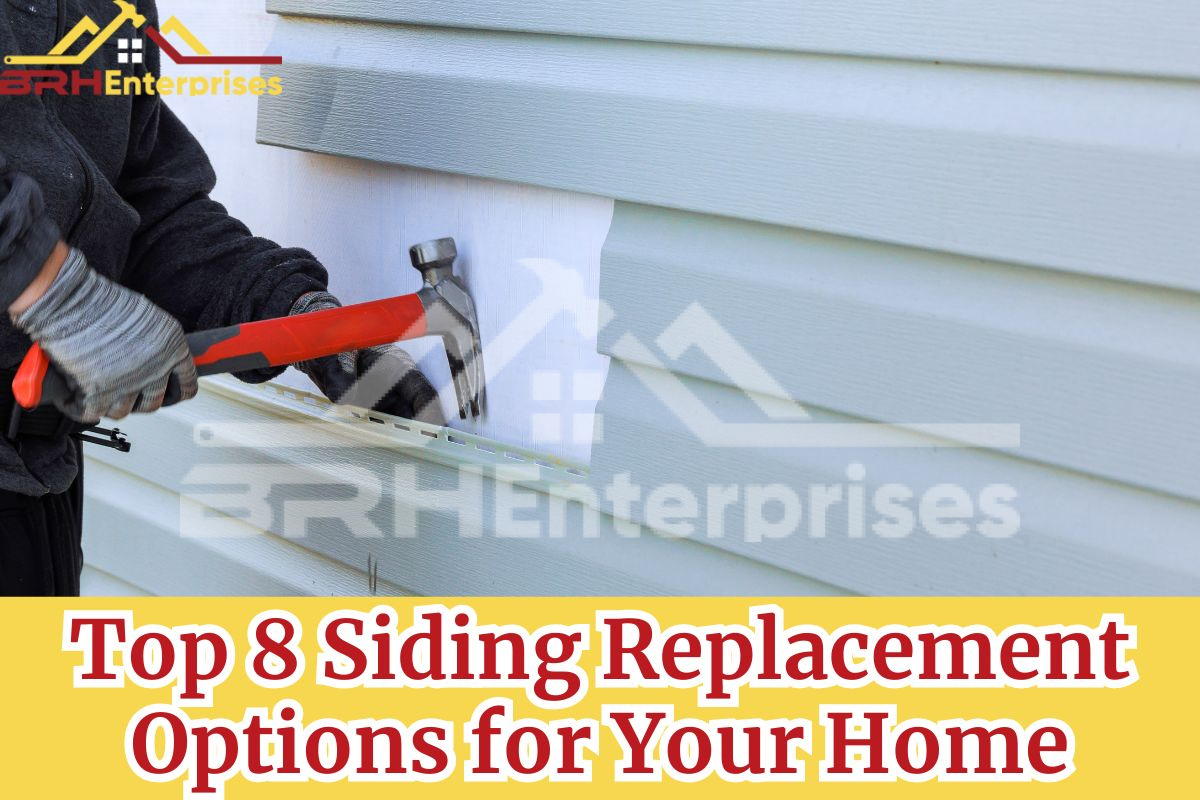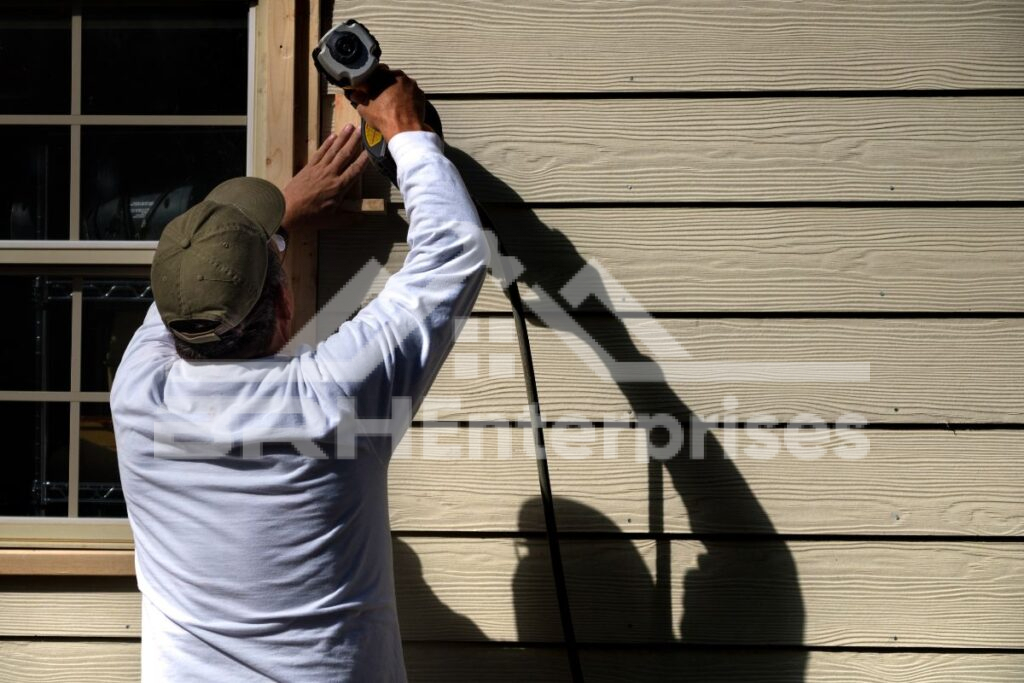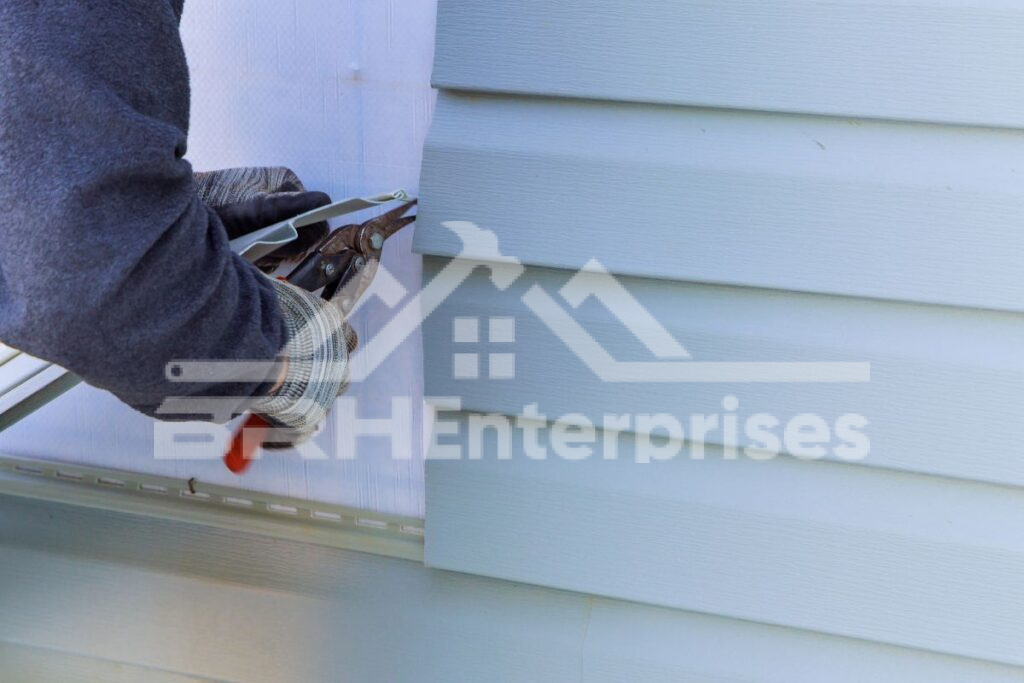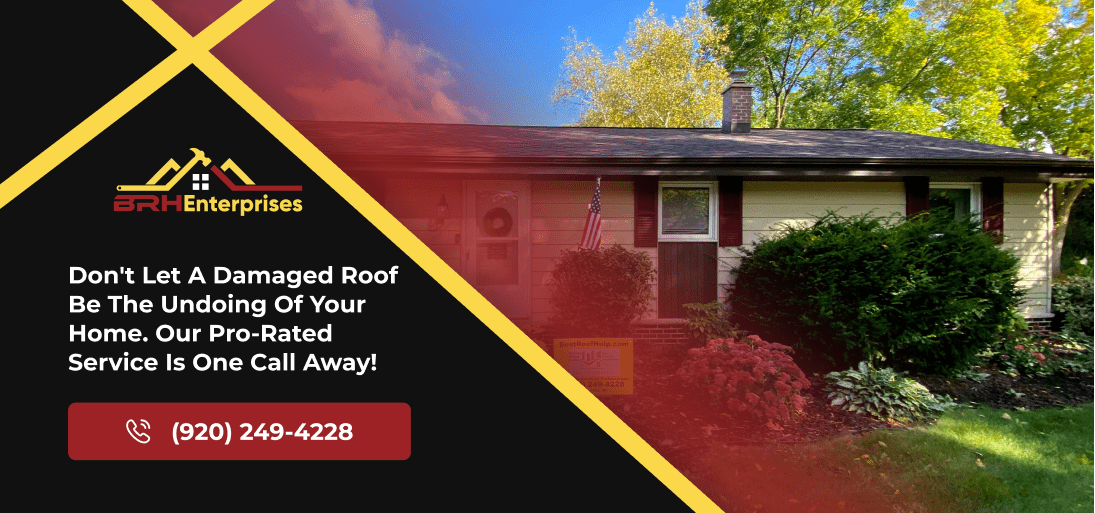Top 8 Siding Replacement Options for Your Home
Estimated Reading Time : 6 Min.

Home improvement projects, particularly siding replacement, can have a significant impact on your home. Siding protects your home from the elements, improves curb appeal, and may even boost resale value. But with so many options available, selecting the right siding can be difficult. This comprehensive guide looks at the top eight siding replacement options to help you make an informed decision for your home.
8 Best Options For Siding Replacement
Here is a list of eight quality home siding replacement options:
1. Fiber Cement Siding

The first option, known for its strength and durability, is fiber cement, a popular siding replacement option for homes and buildings. Made from a blend of cement, cellulose fibers, and sand, it offers an attractive appearance and long-lasting performance.
One of its best features is its ability to mimic the look of natural wood, providing a variety of design options. It can withstand harsh weather conditions, making it ideal for regions with extreme climates. With its many benefits, it is a good option for many homeowners.
| PROS | CONS |
|---|---|
| Durability: Resistant to extreme weather, lasts 30-50+ years. | Higher Initial Cost: More expensive than vinyl or aluminum siding. |
| Fire Resistance: Made from non-combustible materials. | Weight and Installation Difficulty: Heavier and harder to install, increasing labor costs. |
| Insect and Rot Resistance: Not affected by termites or rot. | Potential for Moisture Issues: Improper installation can cause moisture problems. |
| Low Maintenance: Needs occasional cleaning and repainting every 15-25 years. | Brittleness: Can crack if mishandled, cutting produces harmful silica dust. |
2. Vinyl Siding

Vinyl siding is another popular exterior siding for homes and buildings, made from polyvinyl chloride (PVC) resin, which makes up about 80% of its composition. It has improved in quality and design over the years, becoming a top choice in North America.
Known for its durability, vinyl siding resists harsh weather, rotting, warping, and cracking, and requires minimal maintenance—no painting or caulking needed, and it cleans easily with soap and water. Available in many colors and styles, it offers modern features like impact and fade resistance, plus optional insulation for added energy efficiency.
Many products come with warranties of up to 50 years, ensuring reliability and long-lasting performance.
| Pros | Cons |
|---|---|
| Affordability: Cost-effective, often 25% to 50% cheaper than alternatives. | Durability Issues: Prone to cracking, fading, and warping in extreme weather. |
| Variety of Colors and Styles: Wide range of options; color is baked in, so no repainting needed. | Lower Resale Value: May not add as much value as premium materials. |
| Low Maintenance: No need for painting or sealing, just occasional washing. | Limited Insulation: Provides minimal insulation, so additional insulation may be needed. |
| Water Resistance: Naturally water-resistant, preventing rot and mold. | Color Fading: Can fade over time, especially in strong sunlight. |
| Repairability: Damaged panels can be replaced individually, saving on repair costs. | Temperature Sensitivity: Can warp or become brittle in extreme temperatures. |
3. Metal Siding
The next option, metal siding, is another durable siding replacement option, made from metals like steel and aluminum. It’s commonly used in both residential and commercial construction for its longevity and low maintenance.
This siding gives a building a modern appearance while also providing excellent insulation and resistance to pests and rot. It is available in various styles, colors, and finishes and can be customized to specific architectural designs, making it a popular choice for new constructions and renovations.
| PROS | CONS |
|---|---|
| Durability: Resists severe weather and lasts long. | Cost: Higher initial investment; varies with metal gauge. |
| Low Maintenance: Easy to clean, doesn’t absorb moisture. | Denting: Susceptible to dents from impacts; repairs can be difficult. |
| Fire Resistance: Non-combustible, adds fire safety. | Installation Difficulty: More complex installation; often needs a professional. |
| Insect Resistance: Pests are not attracted to metal siding. | Rusting: Steel can rust in coastal areas; corrosion-resistant metals are needed. |
4. Wood Siding
A classic and visually appealing choice, wood siding is valued for its natural beauty and versatility. Commonly made from cedar, pine, or spruce, it enhances a home’s appearance while providing insulation and durability.
The variety of styles allows homeowners to customize their exteriors to match personal tastes and architectural designs. However, wood siding requires regular maintenance to maintain its longevity, including inspections and protective treatments to prevent damage from moisture and pests.
5. Brick Veneer Siding
Using a single layer of bricks on a building’s exterior, brick veneer siding provides the look of solid brick without the heavy weight. This lightweight facade can be installed over various types of framing, such as wood or steel, making it both cost-effective and easy to install. Unlike traditional load-bearing brick walls, brick veneer is primarily decorative, enhancing the visual appeal of homes and buildings while offering some insulation benefits.
| PROS | CONS |
|---|---|
| Cost-Effectiveness: Cheaper than solid brick, about a third of the price. | Structural Limitations: Not load-bearing; relies on an underlying frame. |
| Lightweight: Easier to install due to lighter weight. | Moisture Issues: Can retain moisture; may damage framing if not managed. |
Aesthetic Appeal: Classic brick look with various colors and textures. | Cracking and Repairs: Mortar joints may crack; repairs can be difficult. |
Durability: Withstands weather, fire, and pests; low maintenance. | Pest Vulnerability: Framing behind veneer can be vulnerable to termites. |
Energy Efficiency: Regulates indoor temperatures, can save on energy bills. | Limited Lifespan: Shorter lifespan compared to solid brick; may need more frequent repairs. |
6. Stucco Siding
Stucco is made from a mixture of Portland cement, sand, and water that is applied in multiple layers to produce a durable, textured finish. Known for its aesthetic appeal and longevity, can last for up to 50 years with proper care. It has various customization options, including smooth to highly textured surfaces and various colors, allowing homeowners to match their architectural style. Furthermore, stucco improves energy efficiency by forming an airtight seal. However, it requires skilled installation and may encounter moisture issues in very wet climates, necessitating careful drainage and maintenance to avoid damage.
| PROS | CONS |
|---|---|
| Durability: Can last 50 to 100 years with proper care. | Moisture Absorption: Porous, can absorb moisture and lead to water damage if not properly installed. |
Fire and Pest Resistance: Resists fire, mold, and termites. | Cracking: May develop cracks over time. |
Low Maintenance: Minimal upkeep needed; occasional inspections and patching. | Limited Flexibility: Rigid and can crack; less adaptable to structural changes. |
| Energy Efficiency: Good insulation properties, helps with heating and cooling costs. | Maintenance Costs: Repairs can add up over time, especially with moisture issues. |
7. Stone Veneer Siding
A decorative material, stone veneer mimics the look of natural stone while being lightweight and easy to install. Composed of thin layers of natural or manufactured stone, it functions as a non-load-bearing covering for various architectural applications, enhancing the aesthetic appeal and value of buildings.
Ideal for residential and commercial use, stone veneer offers a versatile solution for achieving a rustic or contemporary look without the weight and expense of full-stone masonry. Its durability, low maintenance, and eco-friendly characteristics make it a practical and attractive choice for homeowners.
| PROS | CONS |
|---|---|
| Cost-Effective: Cheaper than natural stone. Lightweight: Easier to handle and install. | Moisture Issues: Improper installation can lead to mold and damage. |
| Variety of Styles: Comes in many colors and textures, mimics natural stone. | Less Unique Appearance: Often mass-produced, less unique than natural stone. |
| Durability: Lasts many years, withstands weather with minimal maintenance. | Potential for Damage: Can chip or crack if not installed correctly; strong cleaners can harm it. |
| Installation Versatility: Can be applied to various surfaces. | Not Suitable for All Applications: May not be ideal for high-moisture areas. |
8. Corrugated Metal Siding
A versatile and durable option, corrugated metal siding offers both style and practical benefits. Made from galvanized steel or aluminum, it has a wavy pattern that adds visual interest and strength, making it weather-resistant. Available in many colors and finishes, it suits modern and rustic designs. Its low maintenance needs—no rotting, warping, or regular repainting—make it economical. Additionally, its reflective properties help regulate indoor temperatures, improving energy efficiency.
| PROS | CONS |
|---|---|
| Cost-Effective: Cheaper than many other siding materials. | Noise: Can be noisy during rain or hail. |
| Durability: Resistant to weather, fire, and pests with minimal maintenance. | Potential for Dents: Susceptible to dents from impacts. |
| Easy Installation: Suitable for DIY projects. | Rust and Corrosion: Can rust without proper treatment. |
| Energy Efficiency: Reflects heat, reducing cooling costs. | Less Sophisticated Appearance: Exposed fasteners may not look as sleek. |
| Variety of Styles: Comes in many colors and patterns to fit different aesthetics. | Leak Potential: Exposed fasteners can lead to leaks if not maintained. |
Conclusion
Deciding on the right siding for your home is an important decision that affects both its appearance and performance. Each of the options listed above has advantages and disadvantages, so it’s critical to consider your specific requirements, preferences, and budget.
Upgrade your home’s siding with BRH Enterprises! Our expert team ensures top-quality installation and uses the best materials to enhance your home’s look and durability. Contact us today at (920) 249-4228 for a consultation and experience the BRH difference!


